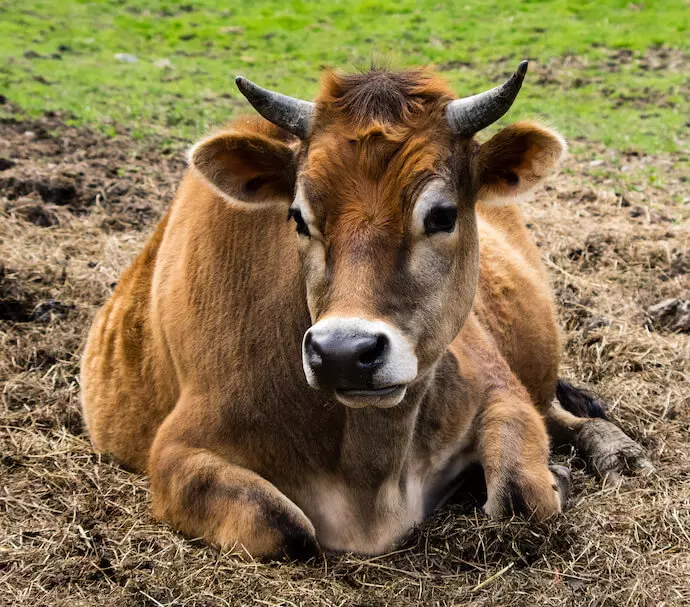The Cost of Caring
 Today we have a guest post from Julie Squires, a Certified Compassion Fatigue Educator and Specialist who also leads tours at the Sanctuary. Julie is the founder of Rekindle, a company that provides training and education to individuals and organizations on compassion fatigue. If you would like to learn more about compassion fatigue, Julie is hosting a workshop at the Homestead on April 9.
Today we have a guest post from Julie Squires, a Certified Compassion Fatigue Educator and Specialist who also leads tours at the Sanctuary. Julie is the founder of Rekindle, a company that provides training and education to individuals and organizations on compassion fatigue. If you would like to learn more about compassion fatigue, Julie is hosting a workshop at the Homestead on April 9.
Compassion is the feeling of deep sympathy and sorrow for another who is stricken by misfortune, accompanied by a strong desire to alleviate the suffering. If you work with animals or are a caregiver of humans you clearly know compassion. If you are deeply moved by the stories of neglect and abuse of some of Catskill Animal Sanctuary’s residents, you clearly know compassion. And if you are horrified at the way animals are exploited in the world today, you clearly know compassion.Empathy on the other hand is the psychological identification with or vicarious experiencing of the feelings, thoughts, or attitudes of those we care for or those whose pain and suffering we have witnessed or heard about. This is where as helpers and caregivers we can get into trouble. When we start embodying the pain and suffering of another, we not only lose ourselves but suffer as well. And here’s the thing, when this happens we also lose our own ability to be an effective caregiver, helper, or activist. Compassion fatigue is the profound exhaustion and depletion we feel when we have been repeatedly exposed to another’s pain and suffering. It can be emotional, psychological, physical, and spiritual and affects all areas of our lives. But we can’t change what we first don’t acknowledge.
 We see the highest incidence of compassion fatigue among those professions that are exposed to high levels of trauma and emotionally stressful situations. When employees have compassion fatigue, so does the organization. It’s a contagion resulting in low morale and high turnover.
Many of us are familiar with the term burnout, and while burnout can contribute to compassion fatigue the two are quite different. Burnout is caused when the work exceeds the resources. This is commonly seen in professions such as emergency medicine, community mental health providers, animal shelters and anywhere else where the work is nonstop and overwhelming. It is a workplace issue. Compassion fatigue is about who we are, how we cope with the emotional residue of our work, and our beliefs about ourselves. Compassion fatigue is a personal issue.
Here’s the most important piece: we don’t get compassion fatigue because we did something wrong or aren’t cut out for the work, we get compassion fatigue because we care. Deeply.
The most important thing to remember is to help yourself. We are called to give voice to those who can’t speak for themselves, not to have it destroy us. When that is the result, we all suffer.
We see the highest incidence of compassion fatigue among those professions that are exposed to high levels of trauma and emotionally stressful situations. When employees have compassion fatigue, so does the organization. It’s a contagion resulting in low morale and high turnover.
Many of us are familiar with the term burnout, and while burnout can contribute to compassion fatigue the two are quite different. Burnout is caused when the work exceeds the resources. This is commonly seen in professions such as emergency medicine, community mental health providers, animal shelters and anywhere else where the work is nonstop and overwhelming. It is a workplace issue. Compassion fatigue is about who we are, how we cope with the emotional residue of our work, and our beliefs about ourselves. Compassion fatigue is a personal issue.
Here’s the most important piece: we don’t get compassion fatigue because we did something wrong or aren’t cut out for the work, we get compassion fatigue because we care. Deeply.
The most important thing to remember is to help yourself. We are called to give voice to those who can’t speak for themselves, not to have it destroy us. When that is the result, we all suffer.
 One of the first things we can do is start listening to the voice within us that is asking for our attention. Many of us are the first ones to respond to someone’s request for help yet we ignore our own calls for help. Over and over and over again. And then we are “inexplicably” stricken with physical ailments, exhaustion, depression, etc. We say we didn’t see it coming but the truth is we didn’t listen to our bodies when it was whispering to us so now it is shouting. The sad truth is that many leave the work or positions of advocacy because they “burned themselves out.” Their fire burned too hot and wasn’t stoked with sustainable fuel.
We can’t give what we don’t have. I’ve found most helpers are selfless. That’s actually not a good thing. In order to be of true service we have to come from a place of abundance and not depletion.
Ask yourself the following five questions:
One of the first things we can do is start listening to the voice within us that is asking for our attention. Many of us are the first ones to respond to someone’s request for help yet we ignore our own calls for help. Over and over and over again. And then we are “inexplicably” stricken with physical ailments, exhaustion, depression, etc. We say we didn’t see it coming but the truth is we didn’t listen to our bodies when it was whispering to us so now it is shouting. The sad truth is that many leave the work or positions of advocacy because they “burned themselves out.” Their fire burned too hot and wasn’t stoked with sustainable fuel.
We can’t give what we don’t have. I’ve found most helpers are selfless. That’s actually not a good thing. In order to be of true service we have to come from a place of abundance and not depletion.
Ask yourself the following five questions:
- When is the last time I did something for myself?
- How do I recharge myself?
- What practices do I incorporate into my life to rebalance?
- How do I recover from all that I give?
- How do I slow down?
Sanctuary Journal, Sanctuary Life
TagsComments are closed.






This sounds like just what the doctor ordered.
I have a real hard time even going past a farm where there are cows . I took my granddaughter to see them and ended up falling apart. I just wanted to bring them all home.
What time is the meeting?
Hi Lee Ann,
I hear you!
The workshop is April 9 from 11-4. If you are not local, there are still some rooms available at the Homestead. Here’s the link for more info:https://casanctuary.org/event/the-cost-of-caring-how-to-defeat-compassion-fatigue/
Would love to have you at the workshop!
Julie